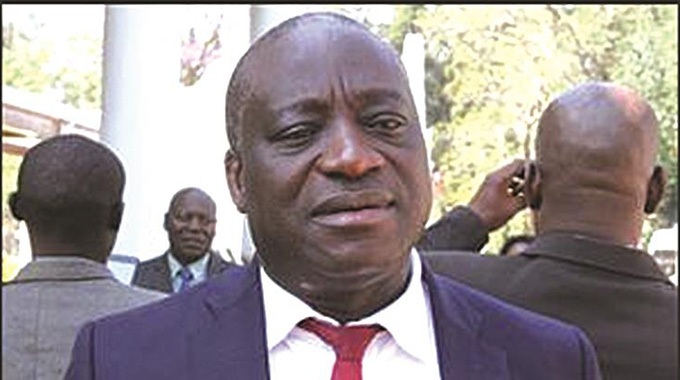Be wary of NGOs intent on usurping State power

Ranga Mataire Writing Back
DEVOID of any ideological direction and concrete grassroots structures, the opposition CCC and some non-governmental organisations are resorting to fomenting political tension and violence to justify more funding from their benefactors ahead of national elections next year.
While an election season is for some a time to sell manifestos and envision a productive and prosperous future for the people, for some in the opposition, it’s “cash-cow” time. But before the dollars start rolling in, they stir the political environment including claiming ownership of people dying as a result of domestic violence.
Already, there are reports that one Western embassy has already started dishing out funds to some opposition political parties and like-minded NGOs.
The funds are said to be for capacitating civil society organisations to contribute meaningfully towards good governance. But we all know that the real motive is regime change.
We bear no grudges for Western embassies largesse in feeding the NGOs officials, but we are not blind to devious attempts of wanting to turn civic organisations into quasi-state players.
No one is blind to the fact that the ultimate goal of regime change benefactors is to remove the revolutionary ZANU-PF party from power and install pliable regimes.
Judging by the frenzy within the NGO sectors and within the corridors of some opposition political parties, they appear to have received the signal to begin fomenting unrest and mobilising supporters to heighten anti-establishment narratives on all platforms particularly on social media.
How does one explain this capacitation that never ends and always heightens ahead of national elections? How does one explain that despite reports of massive abuse of funds within the NGO sector, funders like the EU continue to pour money towards this capacitation instead of holding officials to account?
The answer lies in that far from espousing accountability and transparency, which are the buzzwords for NDGs and civil society organisations, their real motive for existence is political and in the case of Zimbabwe, it is to assist in removing an obstinate revolutionary party like ZANU-PF from power.
In order to justify this hideous agenda, they first foment conditions that portray the State as incompetent and brutish and the assumption of competence and success is attributed to non-governmental organisations.
Huge sums of money, which could have been channelled to the State for national economic development are thus channelled to the NGOs for claimed human rights advocacy work.
All this is driven by a neo-liberal agenda, which has found a comfortable home in Zimbabwe where there is fervent promotion of civil society as blemishless and the demotion of the State as a failure.
So flagrant has been this State vilification that some NGO funders that many of the functions of the State are now pushed into the sphere of civil society. The State is morally condemned and more of State involvement is seen as a problem and less of it as necessary.
The neo-liberal global discourse has continued to be tilted against the African state. The State has been urged to reduce its presence in society, maintain macro-economic stability through balance of payment adjustment and is urged to create capacity through “good governance” and an enabling environment for private actors and civil society.
Ironically, it is the same incompetent failed State that is given the task of reforming itself while being undermined by a well-oiled civil society.
This labelling of the State as “failed” and civil society as the “saints” betrays more of an ideological preference than a real description of the reality on the ground.
Far from civil society being “saints”, the idea of benefactors like the European Union, the US embassy and George Soros’ Open Society in funding NGOs and civil society has the effect of manufacturing a new political economy where the State and civil society become engaged in perpetual tensions and conflicts rather than being able to promote partnership and social cohesion.
What has become apparent in the case of Zimbabwe is the phenomenon of the NGO-dom becoming something like a new social space for making a living.
What is clear to any discerning observer is that NGOs have become primarily sources of employment rather than promoting social or cultural causes.
Zimbabweans need to question the mode of constituting civil society and State relations in terms of metaphors of “failure and success” because the truth is much of the morass is prevalent in the NGO sector.
While our Ubuntu makes us applaud visitors who show concern for welfare, the same visitors must not shape or define our social needs in a deceptive manner. Local people are conscious of their primary needs.
The post-colonial epoch has witnessed a concerted effort to create powerful discourses competing to control content and related social practices regarding economic, social and political changes.
These discourses have continued being externally-imposed and in most cases exclude the indigenous concepts and beliefs. We are past the racist “civilisation mission” and the white man’s burden.
There is a common Shona saying that states: “chakachenjedza ndechakatanga”. Over the years, the obtrusiveness of the NGOs and civil society had become something of a security threat. Their modus operandi are premised on latent retrogressive goals.
They first create and foment anarchy and blame the State for heavy handedness or failure to take action. Second, they fervently create conditions that give the impression of a State that is uncaring of citizens by distributing trinkets to citizens in need of food aid or those suffering a natural calamity like cyclones.
Third, they establish a new regime of NGO-dom and corporate power to do the job of the “failed state”.









Comments